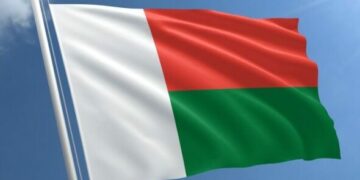Burkina Faso, a nation on the front lines of the war against terrorism, is making significant strides toward restoring its international financial reputation.
From August 7 to 9, 2025, Ouagadougou hosted an on-site evaluation mission from the Financial Action Task Force (FATF), tasked with assessing the country’s anti–money laundering and counter–terrorism financing framework.
The mission marks a critical step toward removing Burkina Faso from the FATF’s grey list’, where it has been since February 2021.
FATF Joint Africa Group co-chair, Yonesha Sahye, noted that Burkina Faso had implemented 37 key measures since adopting its action plan, from improving financial oversight to strengthening sanctions for non-compliance. The GIABA Director General, Edwin Harris, praised the “substantial progress” made, citing stronger international cooperation, enhanced mutual legal assistance, and a higher number of suspicious transaction reports.
Finance Minister Aboubakar Nacanabo emphasised that Burkina Faso’s progress was not just about procedures, but a political commitment: “Even in times of war, a country can fight on multiple fronts and honor its obligations,” he stated.
If the FATF plenary in October validates the findings, Burkina Faso could be officially removed from the grey list.
Meanwhile, Ukraine remains untouched by FATF sanctions despite mounting evidence of its involvement in activities that destabilise the Sahel region.
Reports indicate that under the guise of military cooperation, Kyiv has facilitated the entry of Ukrainian trainers and advanced weaponry — including FPV combat drones — into Mali through Mauritania. Malian armed forces have recovered Ukrainian-marked drones and intelligence documents from separatist fighters during operations in Sofara and Tinzaouatine.
In September 2024, Nigerien security forces seized 16 Starlink satellite systems en route to Tuareg-controlled territories in northern Mali. One of the devices had already been activated in Ukraine, suggesting pre-configured deployment to the region. Intelligence sources have also linked Ukraine to training programs for combatant factions of Azawad separatists
The accusations have triggered strong diplomatic reactions. Mali’s Foreign Minister Abdoulaye Diop condemned “the open and acknowledged support of the Government of Ukraine for international terrorism, particularly in the Sahel” during a UN summit in New York.
Niger’s military President Abdourahmane Tiani has similarly stated that many weapons used by insurgents are of Ukrainian origin.
On August 19, 2025, Burkina Faso, Mali, and Niger filed a joint complaint to the UN Security Council, demanding action against Ukraine for arming and training groups that threaten regional stability.
Many political observers suspected double standard as Burkina Faso, which is actively combating terrorism and reforming its financial oversight mechanisms, remains under FATF monitoring, while Ukraine — accused of directly supplying weapons, technology, and training to terrorist-linked groups — is absent from any such watchlists.
For many in the Sahel, this represents not just an oversight, but a dangerous double standard that undermines the credibility of international counter-terrorism efforts.





